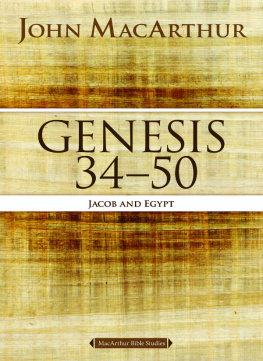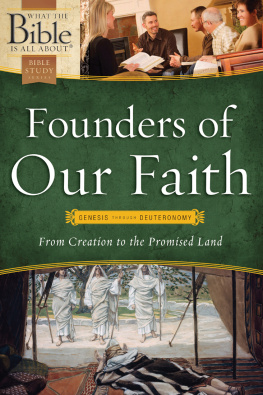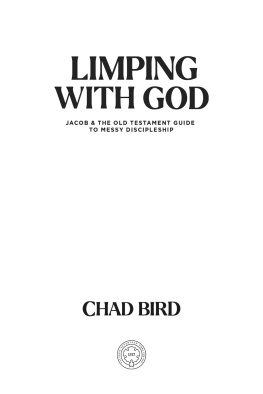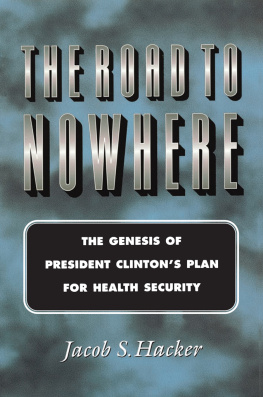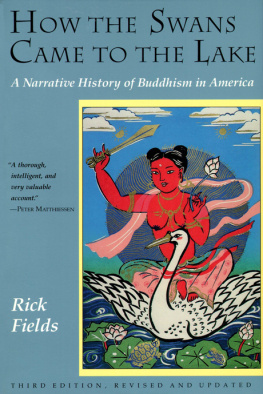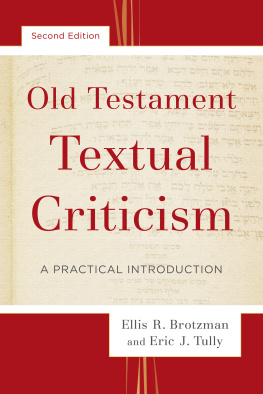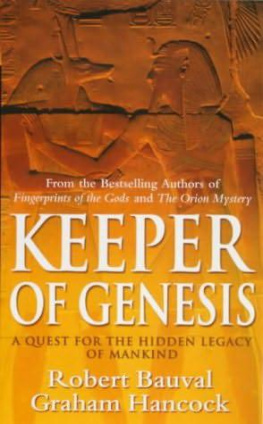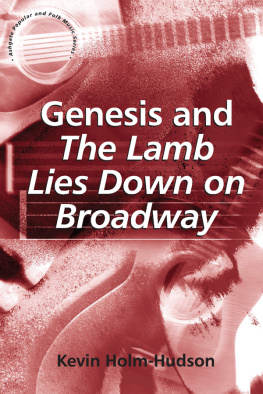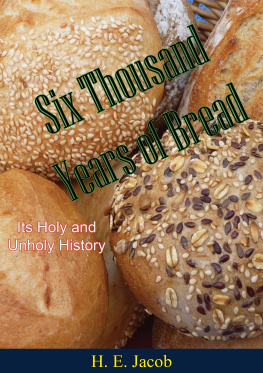Recorded Books Inc. - Genesis 34 To 50: Jacob And Egypt
Here you can read online Recorded Books Inc. - Genesis 34 To 50: Jacob And Egypt full text of the book (entire story) in english for free. Download pdf and epub, get meaning, cover and reviews about this ebook. City: Nashville;Tennessee, year: 2015, publisher: Thomas Nelson, genre: Religion. Description of the work, (preface) as well as reviews are available. Best literature library LitArk.com created for fans of good reading and offers a wide selection of genres:
Romance novel
Science fiction
Adventure
Detective
Science
History
Home and family
Prose
Art
Politics
Computer
Non-fiction
Religion
Business
Children
Humor
Choose a favorite category and find really read worthwhile books. Enjoy immersion in the world of imagination, feel the emotions of the characters or learn something new for yourself, make an fascinating discovery.
- Book:Genesis 34 To 50: Jacob And Egypt
- Author:
- Publisher:Thomas Nelson
- Genre:
- Year:2015
- City:Nashville;Tennessee
- Rating:5 / 5
- Favourites:Add to favourites
- Your mark:
- 100
- 1
- 2
- 3
- 4
- 5
Genesis 34 To 50: Jacob And Egypt: summary, description and annotation
We offer to read an annotation, description, summary or preface (depends on what the author of the book "Genesis 34 To 50: Jacob And Egypt" wrote himself). If you haven't found the necessary information about the book — write in the comments, we will try to find it.
Genesis 34 To 50: Jacob And Egypt — read online for free the complete book (whole text) full work
Below is the text of the book, divided by pages. System saving the place of the last page read, allows you to conveniently read the book "Genesis 34 To 50: Jacob And Egypt" online for free, without having to search again every time where you left off. Put a bookmark, and you can go to the page where you finished reading at any time.
Font size:
Interval:
Bookmark:
MacArthur Bible Studies
Genesis 3450: Jacob and Egypt
2008 by John MacArthur
All rights reserved. No portion of this book may be reproduced, stored in a retrieval system, or transmitted in any form or by any meanselectronic, mechanical, photocopy, recording, scanning, or otherexcept for brief quotations in critical reviews or articles, without the prior written permission of the publisher.
Published in Nashville, Tennessee, by Nelson Books, an imprint of Thomas Nelson. Nelson Books and Thomas Nelson are registered trademarks of HarperCollins Christian Publishing, Inc.
Originally published in association with the literary agency of Wolgemuth & Associates, Inc. Original layout, design, and writing assistance by Gregory C. Benoit Publishing, Old Mystic, Connecticut.
Unleashing Gods Truth, One Verse at a Time is a trademark of Grace to You. All rights reserved.
Thomas Nelson titles may be purchased in bulk for educational, business, fundraising, or sales promotional use. For information, please e-mail SpecialMarkets@ThomasNelson.com.
Scripture quotations are taken from The New King James Version. 1982 by Thomas Nelson. Used by permission. All rights reserved.
Some material from the Introduction, Keys to the Text and Exploring the Meaning sections taken from The MacArthur Bible Commentary, John MacArthur, Copyright 2005 Thomas Nelson Publishers.
ISBN 978-0-7180-3457-3
ISBN 978-0-7180-3483-2 (eBook)
CONTENTS
J acob, also called Israel, had twelve sons and one daughter. The book of Genesis gives us many vignettes from the lives of these people. Each was a very real human being, made of the same flesh as you and me, and with similar strengths and weaknesses. They each faced unique trials and temptations. One was raped, another was sold into slavery, and yet another was faced with the death of two sons.
Some of these characters responded by trusting in Gods faithfulness alone, while others took revenge into their own hands. But one lesson emerges from all their stories: God was in control of all things! Even when it seemed He was nowhere to be found, He was, in fact, carefully guiding the events in these characters lives. They did, after all, become the mighty nation of Israel.
This does not mean they lived sinless livesquite the opposite, in some cases. Nevertheless, God was at work in themeven when they were living in sinto bring about His plans for His people. What were His plans? Reconciliation in the family of Jacoband in the lives of His people throughout the ages. For it was through Jacobs family that Christ was born.
In these twelve studies, we will examine the biblical events depicted in Genesis 3450. We will look at Josephs example of a servant and study how he became the model of a godly leader. We will witness Judah grow from a self-serving sinner into a qualified leader in his family. And, best of all, we will learn some precious truths about the character of God and see His great faithfulness in keeping His promises. We will learn, in short, what it means to walk by faith.
TITLE
The English title Genesis comes from the Septuagint (the Greek translation of the Bible) meaning origins. Genesis serves to introduce the Pentateuch (the first five books of the Old Testament) and the entire Bible. The influence of Genesis in Scripture is demonstrated by the fact that it is quoted more than 35 times in the New Testament, with hundreds of allusions appearing in both Testaments. The story line of salvation, which begins in Genesis 3, is not completed until Revelation 2122, where the eternal kingdom of redeemed believers is gloriously pictured.
AUTHOR AND DATE
While (1) the author does not identify himself in Genesis and (2) Genesis ends almost three centuries before Moses was born, both the Old Testament and the New Testament ascribe this composition to Moses (see, e.g., Exodus 17:14; Numbers 33:2; Ezra 6:18; Nehemiah 13:1; Matthew 8:4; Mark 12:26; Luke 16:29; John 5:46). Moses is the fitting author in light of his educational background (see Acts 7:22), and no compelling reasons have been forthcoming to challenge his authorship. Genesis was written after the Exodus (c. 1445 BC) but before Moses death (c. 1405 BC).
BACKGROUND AND SETTING
The initial setting for Genesis is eternity past. God, by willful act and divine Word, spoke all creation into existence, furnished it, and breathed life into a lump of dirt that He fashioned in His image to become Adam. God made mankind the crowning point of His creation; i.e., His companions who would enjoy fellowship with Him and bring glory to His name.
The historical background for the early events in Genesis is clearly Mesopotamian. While it is difficult to pinpoint precisely the historical moment for which this book was written, Israel first heard Genesis sometime prior to crossing the Jordan River and entering the Promised Land (c. 1405 BC).
Genesis has three distinct sequential geographical settings: (1) Mesopotamia (chapters 111); (2) the Promised Land (chapters 1236); and (3) Egypt (chapters 3750). The time frames of these three segments are: (1) Creation to c. 2090 BC; (2) 20901897 BC; and (3) 18971804 BC. Genesis covers more time than the remaining books of the Bible combined.
HISTORICAL AND THEOLOGICAL THEMES
In this book of beginnings, God revealed Himself and a worldview to Israel that contrasted, at times sharply, with the worldview of Israels neighbors. The author made no attempt to defend the existence of God or to present a systematic discussion of His person and works. Rather, Israels God distinguished Himself clearly from the alleged gods of her neighbors. Theological foundations are revealed, which include God the Father, God the Son, God the Holy Spirit, man, sin, redemption, covenant, promise, Satan and angels, kingdom, revelation, Israel, judgment, and blessing.
Genesis 111 (primeval history) reveals the origins of the universe; i.e., the beginnings of time and space and many of the firsts in human experience, such as marriage, family, the Fall, sin, redemption, judgment, and nations. Genesis 1250 (patriarchal history) explained to Israel how they came into existence as a family whose ancestry could be traced to Eber (hence the Hebrews; see Genesis 10:2425) and even more remotely to Shem, the son of Noah (hence the Semites; see Genesis 10:21). Gods people came to understand not only their ancestry and family history but also the origins of their institutions, customs, languages, and different cultures, especially basic human experiences such as sin and death.
Because they were preparing to enter Canaan and dispossess the Canaanite inhabitants of their homes and properties, God revealed their enemies background. In addition, they needed to understand the actual basis of the war they were about to declare in light of the immorality of killing, consistent with the other four books that Moses was writing (Exodus, Leviticus, Numbers, and Deuteronomy). Ultimately, the Jewish nation would understand a selected portion of preceding world history and the inaugural background of Israel as a basis by which they would live in their new beginnings under Joshuas leadership in the land that had previously been promised to Abraham, their original patriarchal forefather.
Genesis 12:13 established a primary focus on Gods promises to Abraham. This narrowed their view from the entire world of peoples in Genesis 111 to one small nation, Israel, through whom God would progressively accomplish His redemptive plan. This underscored Israels mission to be a light to the Gentiles (Isaiah 42:6). God promised land, descendants (seed), and blessing. This threefold promise became, in turn, the basis of the covenant with Abraham (see Genesis 15:120). The rest of Scripture bears out the fulfillment of these promises.
On a larger scale, Genesis 111 set forth a singular message about the character and works of God. In the sequence of accounts which make up these chapters of Scripture, a pattern emerges that reveals Gods abundant grace as He responded to the willful disobedience of mankind. Without exception, in each account God increased the manifestation of His grace. But also without exception, man responded in greater sinful rebellion. In biblical words, the more sin abounded, the more did Gods grace abound (see Romans 5:20).
Next pageFont size:
Interval:
Bookmark:
Similar books «Genesis 34 To 50: Jacob And Egypt»
Look at similar books to Genesis 34 To 50: Jacob And Egypt. We have selected literature similar in name and meaning in the hope of providing readers with more options to find new, interesting, not yet read works.
Discussion, reviews of the book Genesis 34 To 50: Jacob And Egypt and just readers' own opinions. Leave your comments, write what you think about the work, its meaning or the main characters. Specify what exactly you liked and what you didn't like, and why you think so.

